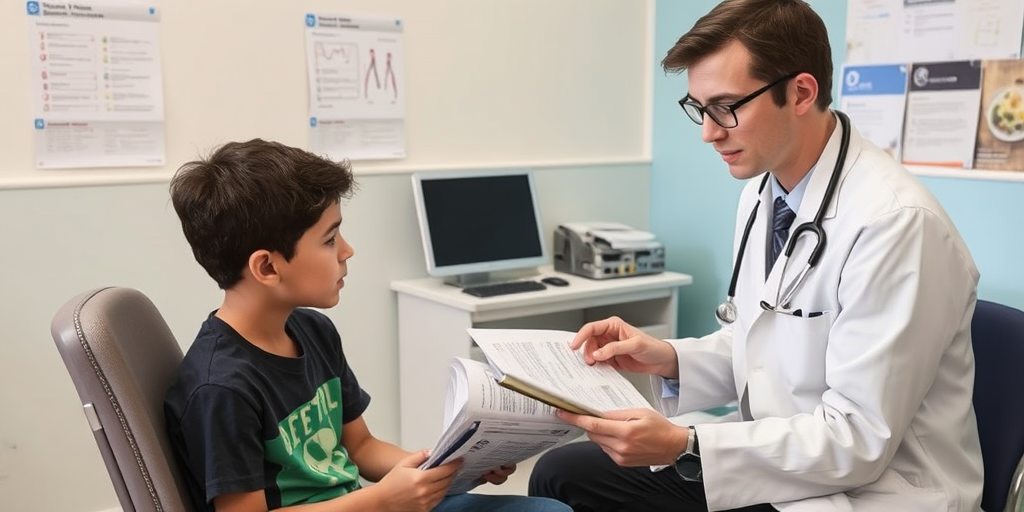Can traditional teen healthcare be too cumbersome for today’s challenges? Direct primary care simplifies the process, granting adolescents straightforward access to personalized services. With flexible scheduling and clear pricing, this model redefines care by addressing both mental and physical wellness. DPC introduces initiatives that promote preventive check-ups and holistic support for teens. This article explains how these patient-focused benefits improve the health experience and empower adolescents to thrive.
What is Direct Primary Care? Understanding DPC in Teen Health
Direct primary care streamlines healthcare delivery by removing insurance-related complexities. This model centers on direct provider-to-patient interactions, offering longer, unrushed appointments that allow teenagers to receive focused attention during each visit. By bypassing traditional administrative burdens, DPC creates an environment where care feels more accessible and efficient. The relationship-based approach nurtures trust and continuity between teens and their healthcare providers, which is essential for early healthcare education and preventive checkups.
DPC also improves the efficiency of healthcare delivery with same-day or next-day appointments. Providers can dedicate more time to each teen, working on customized wellness plans without the interference of external billing complications. This practice not only boosts access to immediate care but also makes it easier to schedule routine and preventive assessments. The benefits are clearly reflected in provider directories that emphasize continuity and personalized care through patient-centered practices.
- Cost predictability
- Improved access
- Transparent pricing
- Continuity of care
Using this model, healthcare becomes more responsive to the unique needs of adolescents. The structure supports early and ongoing education on preventive measures while building strong, lasting relationships that are vital during the teenage years.
Enhancing Teen Mental and Emotional Wellbeing with DPC

Direct primary care creates mental wellness solutions for adolescents by implementing proactive strategies that address emotional challenges early in life. Initiatives from Idaho offer training that uses the 3Ds model to identify signs of distress, disruptive behavior, and persistent concerns. Providers apply non-intrusive listening techniques and clear messaging during emotional intensity to help teens manage stress. This model supports an environment where mental and emotional needs are understood and attended to promptly. By focusing on early indicators of anxiety and stress, DPC paves the way for timely interventions that prevent the escalation of mental health issues among adolescents.
DPC incorporates several key strategies to support teen mental health, ensuring that young individuals receive comprehensive care. Adolescents benefit from structured sessions that focus on developing effective coping mechanisms in a relatable and accessible manner. Providers offer counseling service options through a direct care model that bypasses traditional barriers, and they promote open communication over time. The following strategies represent the core framework for supporting teen mental health:
- Listening skills
- Stress reduction practices
- Anxiety management techniques
- Peer support facilitation
- Direct access to counseling
These strategies enable healthcare providers to address mental health concerns rapidly while fostering a trusting relationship with adolescents. The approach helps teens manage emotional challenges and build resilience, ultimately promoting a sustainable foundation for lifelong mental health.
Evidence and Community Impact: Real-Life DPC Stories in Teen Health

Community feedback and data from established initiatives offer clear evidence of DPC’s role in enhancing teen health. Launched in May 2023 across four counties in Idaho, the program has engaged a broad cross-section of adolescents and their families. Feedback from post-training surveys indicates that parents report increased confidence in recognizing mental health issues among teens. Data from the 2021 youth risk behavior survey and local suicide statistics reinforce the need for patient-centered, timely care. These insights demonstrate that well-coordinated DPC initiatives have improved immediate access to care and created stronger channels for preventive and mental health services. This coordinated approach has led to measurable improvements in overall teen outcomes.
Testimonials from families and healthcare providers further underscore the success of targeted DPC programs. Families describe a noticeable enhancement in communication with providers and quicker follow-ups for minor concerns, leading to earlier identification of mental health challenges. Providers note that longer and unrushed appointments permit deeper engagement, resulting in better-tailored care plans. The integration of direct primary care into local community outreach efforts has built trust and ensured continuous care, as demonstrated by numerous success stories from participants.
- Improved mental health indicators
- Enhanced patient-provider trust
- Increased follow-up and continuous care
Final Words
In the action, the article illustrated how Direct Primary Care transforms teen health through personalized care sessions, clear communication, and accessible wellness strategies.
Structured programs and mental health support models create environments that support both physical and emotional well-being.
Teen Health 101: How DPC Helps Adolescents Thrive speaks to a future of improved access and predictable care expenses.
The human-centered approach reinforces that thoughtful care and responsive scheduling lead to an uplifting healthcare experience.
FAQ
Q: What are the most effective actions teenagers can take to protect their health?
A: Physical activity, balanced nutrition, adequate sleep, stress management, and regular medical check-ups form the foundation of teen health protection. Mental health support and open communication with healthcare providers are equally significant.
Q: What are the key risk factors affecting teen health?
A: The primary risk factors include insufficient physical activity, poor nutrition, inadequate sleep, excessive screen time, substance use, untreated mental health issues, and social isolation.
Q: How does Direct Primary Care (DPC) support adolescent mental health?
A: DPC provides consistent access to mental health screenings, counseling services, and stress management resources. The model enables regular monitoring and early intervention for emotional well-being.
Q: What preventive healthcare services are available for teens through DPC?
A: DPC offers comprehensive health screenings, immunizations, nutritional guidance, physical fitness assessments, and developmental milestone tracking as part of preventive care services.
Q: How does DPC improve healthcare access for teenagers?
A: DPC eliminates insurance barriers, provides same-day appointments, offers extended visit times, and maintains direct communication channels between teens and their healthcare providers.
Q: What role does DPC play in managing chronic conditions in teenagers?
A: DPC provides continuous monitoring, personalized treatment plans, regular health assessments, and coordinated care for teenagers with chronic health conditions.
Q: How does DPC support family involvement in teen healthcare?
A: DPC encourages family participation through shared decision-making, health education sessions, and regular communication between providers, parents, and teens.
Q: What mental health support strategies are included in DPC?
A: DPC incorporates stress reduction techniques, anxiety management tools, depression screening, behavioral health counseling, and crisis intervention support.

